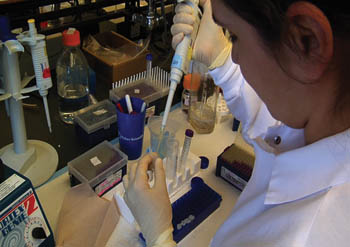Introduction to Scientifically Speaking: The Importance of Research
This is the beginning of a series of posts from Usana Health Sciences going in depth and behind the scenes into the passion that motivates to constantly improve the products we manufacture. Based on real science instead of fads and trends Usana has partnerships with LPI and TOSH to advance research in the field of human health and the role of supplementation. Enjoy these visits.Ekayani Chamberlin
This post originally published on November 10 2011 written by Lisa Kuftinec

Here at USANA Health Sciences, we take dietary supplements seriously.
You’re saying, well, of course you do. You make them.
Correct. However, it is not that simple.
USANA is not in the business of making products that fall into the latest trends. We are in the business of making products that help people live a healthier life.
One way, and possibly one of the most important ways, USANA does this is by using research. That’s right: research. In fact, it says it right on our website:
“At USANA, scientific research is at the heart of every product we offer. Whether in studies conducted by top scientists in our on-site laboratories or findings from the many research partnerships we have across the globe, USANA is fully committed to the research and development of cutting-edge nutritional technology.” — Dr. Myron WentzWe do not bring a product to market, upgrade or enhance a product unless we have done thorough research.
Identifying Online Resources
This is a timely reminder, as there have been some stories in the news about supplements not being beneficial. There is also a great deal of research that highlights the benefits of supplementation. Here are a few resources for you:Natural Product Association research has shown that supplementation can boost immune systems and help improve and maintain overall health, along with combating nutritional deficiencies. The healthier we are, the more we save in health care costs.
The Office of Dietary Supplements’ website is very comprehensive, and includes “Quick Facts” alongside more comprehensive “Health Professional” information. Many resources on the site are for consumers, and help consumers make sound decisions about supplementation.
 A Word from LPI
A Word from LPI
One of our research partners, Linus Pauling Institute, discusses this topic on its website. In this article, they cite data from the National Health and Nutrition Examination Survey (NHANES) stating that using supplements can help combat micronutrient deficiencies, which approximately 70% of the U.S. population suffers from.It also points out that we are deficient in vitamin D, vitamin E, vitamin C, magnesium, vitamin A, and calcium. These micronutrients are important to our health, and if supplementation can help our bodies be more in balance, then I am all for it.
Linus Pauling Institute’s Rx for Health is great resource: it shares tips on proper supplementation usage, alongside healthy eating and lifestyle tips. All three work together, and it is important to remember that supplementation is not a one-stop fix.
Research for Yourself
USANA has put together a comprehensive paper on the Health Benefits of Nutritional Supplements (PDF). This paper is 51 pages of “an enumerative bibliography of peer-reviewed research.” Wow. Divided by health issue, this resource provides references to hundreds of studies that have been conducted that show how supplementation affects the body.Not only does USANA seek out research, we conduct our own.
With partners such as The Orthopedic Specialty Hospital (TOSH), Boston University, the University of Sydney, the University of Colorado Denver, Utah State University, University of Utah, Sanoviv Medical Institute, and the aforementioned, Linus Pauling Institute, we conduct research and clinical trials to test our own hypotheses and to help us understand how nutritional supplements can help the body under different circumstances.
As you can see, the support for dietary supplements is comprehensive. Please know USANA is committed to continuing to make nutritional supplements based upon sound research (read more about it here), to ensure you can trust the products you us


No comments:
Post a Comment
Note: Only a member of this blog may post a comment.